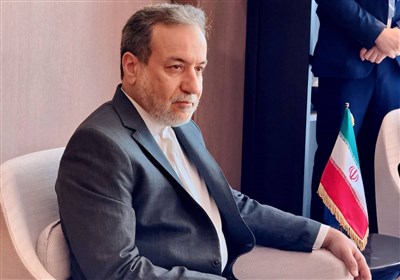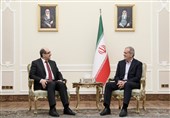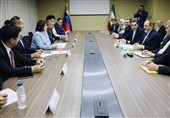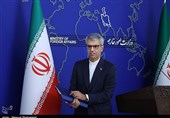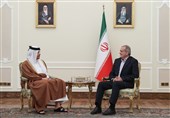US Int’l Prestige Has Fallen under Trump Administration: SIPRI Chief
TEHRAN (Tasnim) – The director of the Stockholm International Peace Research Institute (SIPRI) said the US international prestige “has fallen quite a long way under the Trump administration”.
“The European governments who are genuinely angry with the US administration today would stand by the USA in a crisis tomorrow. I caution against reading too much into the current mood in and around the UN building in New York. International opinion polls, however, do confirm that over many issues the USA is more unpopular than it has been for a long time. It is pretty clear that the USA’s international prestige has fallen quite a long way under the Trump administration,” Dan Smith told Tasnim in an interview.
Dan Smith has a long record of research and publication on a wide range of conflict and peace issues such as nationalism, identity politics, armed conflicts, ethics of intervention, gender aspects of conflict and peacebuilding. In recent years, his work has broadened to encompass other contemporary issues such as the relationship between climate change and insecurity, peace and security issues in the Middle East and global conflict trends. Smith has served four years in the UN Peacebuilding Fund Advisory group, two of which (2010–2011) were as Chair. He has lived most of his adult life in the UK with a 10-year spell in Norway. He has traveled professionally to more than 60 countries.
Following is the full text of the interview:
Tasnim: Most of the Trump administration’s top officials—including State Secretary Mike Pompeo, Defense Secretary Mark Esper, and National Security Adviser Robert O’Brien—in a press conference urged other countries to adhere to its announcement Monday that it had “snapped back” UN sanctions on Iran that were in place prior to the 2015 deal negotiated during the Obama administration. The United States also announced further unilateral sanctions on Iranian officials and entities involved in weapons production. Almost no one followed Washington’s lead, highlighting the latest failure in the Trump administration’s effort to rally the world behind its maximum pressure campaign against Iran. What is your take on this?
Smith: I agree with the position that many have taken, not least the E3 of France, German and the UK, that the US has no legal standing to apply snapback sanctions or even to ask for their application. The JCPOA was endorsed by the UN Security Council in a binding resolution calling on all UN member states to support its implementation. The USA has visibly and loudly refused to do this. It is hard to believe that the US administration will convince anybody outside the USA that it has the legal powers and rights and to unilaterally impose UN sanctions that the rest of the UN Security Council does not want. Whether it will convince anybody inside the USA can be judged by others who are better qualified than I.
Tasnim: Pompeo followed the executive order by telling reporters at the State Department that the administration was imposing penalties on more than two dozen Iranian individuals and institutions and was specifically targeting Venezuelan President Nicolas Maduro’s socialist government for bolstering economic ties with Iran in recent years.Arguing that the US has the right to demand the snapback measures and the UN has a duty to enforce them, Pompeo said “the country that’s isolated today is not the United States but rather Iran.” Do you believe so?
Smith: Leaving aside the COVID-19 pandemic, which has imposed isolation on numerous countries, I would judge that in general terms, Iran is more isolated than the USA. This is because the current US administration has used its power in the world of international finance to scare European and other companies from investing in or trading with Iran. On the issue of snapback sanctions, the validity of the US position, and the key question of whether Iran has implemented the JCPOA and thus whether the USA was right to withdraw — on this set of issues the USA is clearly far more isolated than Iran.
Tasnim: The standoff gives rise to a new maze of unanswered legal and political questions about how Washington could unilaterally enforce multilateral sanctions without the cooperation of other UN powers. It also underscores how some of the United States’ closest allies are fed up with the Trump administration’s unilateralism. “Frankly, there’s a degree of exhaustion with this administration in the Security Council,” said Richard Gowan, the UN director at the International Crisis Group. “On top of three and a half years of Trump unraveling multilateral arrangements, there’s just very little goodwill left for the US right now.” What are your thoughts on this?
Smith: Many diplomats and experts alike regard the Trump administration with this mixture of frustration and fatigue. But I do think this yet goes very deep politically. The European governments who are genuinely angry with the US administration today would stand by the USA in a crisis tomorrow. I caution against reading too much into the current mood in and around the UN building in New York. International opinion polls, however, do confirm that over many issues the USA is more unpopular than it has been for a long time. It is pretty clear that the USA’s international prestige has fallen quite a long way under the Trump administration.


